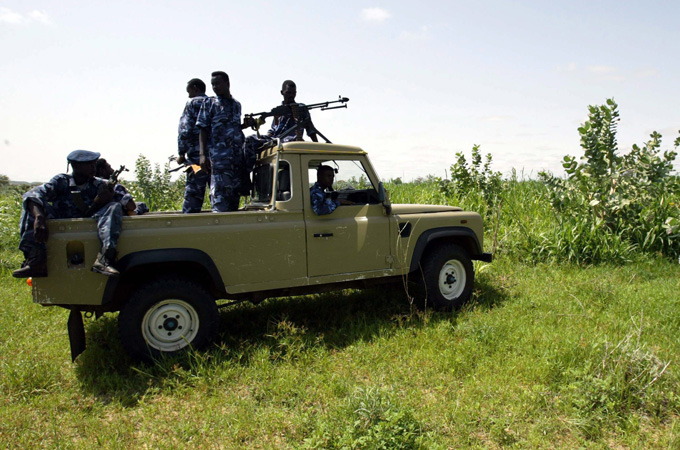Sunday, December 25, 2011
Sudan army 'kills' Darfur rebel leader
Sudan's army has killed a key rebel leader from the western Darfur region, three days after anti-government forces said they had begun advancing on the capital Khartoum.
"The Sudanese army announce that they killed Khalil Ibrahim in fighting today west of Wadbanda in North Kordofan," the official Sudan News Agency (SUNA) said on Sunday.
Ibrahim had headed the Justice and Equality Movement (JEM), the most heavily armed group in the Darfur region, which the government had accused of being being behind earlier attacks.
On Saturday, the Sudanese army said JEM attacked three areas in North Kordofan state-adjacent to Darfur-killing an unspecified number of civilians.
Colonel Sawarmi Khalid Saad, an army spokesman, was quoted on Sudan's military website as saying the attacks targeted areas where security forces were not present, targeting local leaders and looting their property in the Umm-Gozain, Goz Abyadh and Aramal areas.
The death of Ibrahim and "a group of his leaders", if confirmed, could represent a serious blow to the rebel group, although tightly restricted access to Darfur and Sudan's other conflict zones makes it almost impossible to accurately gauge the real strength and internal unity of rebel groups.
The armed forces spokesman said Ibrahim and other leaders had been trying to enter South Sudan, which seceded from Sudan in July under a 2005 peace deal that ended a separate, decades-long civil war.
JEM spokesman Gibril Adam Bilal said on Thursday the group had reached En Nahud, about 120km east of Darfur in North Kordofan, on a mission to topple the regime led by President Omar al-Bashir.
"Ibrahim was of the Zaghawa tribe but his movement includes other tribes. He's even been supported by Islamists in Sudan," Al Jazeera's Mohamed Vall reported from Khartoum.
"But now that he's gone, we don't know if other leaders from JEM can keep support without help from other countries," our correspondent said, describing the loss of main JEM allies with the fall of Libya's Muammar Gaddafi and abandonment by Chad's leader, Idriss Deby.
Darfur conflict
In the past, JEM has launched attacks in Kordofan, about 700km west of Khartoum. They were also behind a 2008 attack in the capital.
In that incident, more than 222 people were killed when JEM guerrillas drove about 1,000km across the desert to Omdurman, just over the River Nile from the presidential palace.
Government troops repulsed them after heavy clashes and later sentenced dozens of rebels to death for their role in the assault.
In July, the government signed the Doha Document for Peace in Darfur with the Liberation and Justice Movement, an alliance of splinter rebel factions.
Darfur's main armed groups, JEM and factions of the Sudan Liberation Army headed by Minni Minnawi and Abdelwahid Nur, did not sign the deal.
Instead, along with the SPLM-North rebels, they last month ratified documents forming the new Sudanese Revolutionary Front dedicated to "popular uprising and armed rebellion" against the National Congress Party regime in Khartoum.
According to the UN at least 300,000 people have been killed in Darfur since 2003 when fighting broke out between non-Arab rebels and the Arab-dominated Khartoum regime. The government puts the death toll at 10,000.
UN officials say 1.9 million people are internally displaced and still living in camps in Darfur, with about 80,000 newly displaced by fighting this year.
Six people, including President Bashir, are being sought or are before the Hague-based International Criminal Court for crimes allegedly committed in the Darfur region.
Al jazeera




 The United Nations says the Darfur conflict has triggered one of the world's worst humanitarian crises [EPA]
The United Nations says the Darfur conflict has triggered one of the world's worst humanitarian crises [EPA]

0 comments